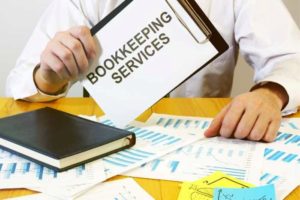
How to Get Better at Bookkeeping: The Basics You Need to Know
Running a business is hard work. There are so many things to think about marketing, sales, product development, customer service, and the list goes on. But one of the most important aspects of any business is bookkeeping. Bookkeeping may not be the most exciting part of owning a business, but it is essential for keeping track of your finances and making sure your business is running smoothly.
If you’re not a natural at bookkeeping, don’t worry—you can get better with practice. Here are the basics you need to know in order to improve your bookkeeping skills.
1. Keep Track of Your Inventory

If you sell physical products, it’s important to keep track of your inventory levels. This information can help you make decisions about production, pricing, and more. There are many different ways for tracking inventory, but one of the simplest is to use a spreadsheet.
Some of the information you’ll want to track for each product includes:
- The number of units in stock: This is important for knowing when you need to order more inventory. And if you’re selling products online, it’s also crucial for preventing oversold items.
- The cost of each unit: This information can help you price your products accurately and make sure you’re making a profit.
- The date of the last inventory update: This will help you keep track of how fast your inventory is moving and make adjustments accordingly.
2. Know Your Numbers
One of the most important aspects of bookkeeping is tracking your finances. This information can help you make informed decisions about where to allocate your resources and where your business is making or losing money.
There are a few key numbers you should always keep an eye on, including:
- Revenue: From online sales, brick-and-mortar sales, and other sources, it’s important to track how much money is coming into your business.
- Expenses: Keep track of all the money you’re spending on things like inventory, rent, marketing, etc. This information can help you identify areas where you’re spending too much or where you can cut costs.
- Profit (or loss): This is the bottom line—the difference between your revenue and expenses. Tracking your profit can help you make decisions about where to invest your resources and whether or not your business is sustainable in the long term.
3. Stay Organized
One of the best ways to improve your bookkeeping skills is to simply stay organized. It means to keep track of all your financial documents and records in one place.
One way to do this is to create a filing system for all your bookkeeping documents. You can use physical folders or an online system like Google Drive or Dropbox. Whichever method you choose, just make sure everything is well-organized and easy to find.
Another way to stay organized is to use free bookkeeping software. This can make it easier to track your finances, generate reports, and more. There are a lot of different bookkeeping software programs out there, so do some research to find one that’s right for your business.
4. Understand the Basics of Accounting
If you want to get better at bookkeeping, it’s also important to understand the basics of accounting. This will give you a better understanding of financial statements and other important bookkeeping concepts.
Here are a few key accounting terms to know:
- Assets: These are the things your business owns, such as cash, inventory, buildings, etc.
- Liabilities: These are the debts and other obligations your business owes, such as loans, credit card debt, etc.
- Equity: This is the difference between your assets and liabilities—in other words, it’s what your business is worth.
- Income: This is the money your business brings in, from things like sales, investments, etc.
- Expenses: These are the costs of running your business, such as inventory, rent, salaries, etc.
5. Hire a Professional

If you’re still struggling to get a handle on your bookkeeping, you may want to consider hiring a professional. Bookkeepers can help you keep track of your finances, prepare financial statements, and more.
While it will cost you money to hire a professional bookkeeper, it may be worth it if it means saving you time and stress in the long run. Plus, a good bookkeeper can help you avoid costly mistakes and ensure your financial records are accurate and up-to-date.
6. Keep Learning
Don’t forget that bookkeeping is a never-ending process. There’s always more to learn, so make sure you’re staying up-to-date on the latest bookkeeping news and tips.
One way to do this is to read articles like this one! You can also sign up for newsletters, take a class, bookkeeping courses, free bookkeeping software, or hire a bookkeeping coach.
No matter how you choose to learn, the important thing is that you’re always improving your bookkeeping skills.
7. Get Started Today!
Now that you know a few tips for improving your bookkeeping skills, it’s time to get started! Don’t wait—the sooner you start, the better off your business will be.
If you’re not sure where to begin, start by taking a look at your financial records. See if there are any areas where you can improve organization or accuracy. Then, start implementing some of the other tips in this article.
Final Thoughts
Good bookkeeping skills are essential for any business, large or small. If you’re not good at it, don’t worry—you can get better. Stay organized, understand the basics of accounting, and hire a professional if you need help. Keep learning and get started today! Your business will thank you.
Still Need Help with Bookkeeping? Let Us Help!
If you’re looking for help with your online bookkeeping services, FreedomTax Accounting is here to help. We offer a variety of services, including bookkeeping, tax preparation, and more. We’re experts in the field with certified bookkeepers, and we can help you get your finances in order.
Contact us today to learn more about our services and how we can help you improve your bookkeeping skills. We’ll be happy to answer any questions you have.



















